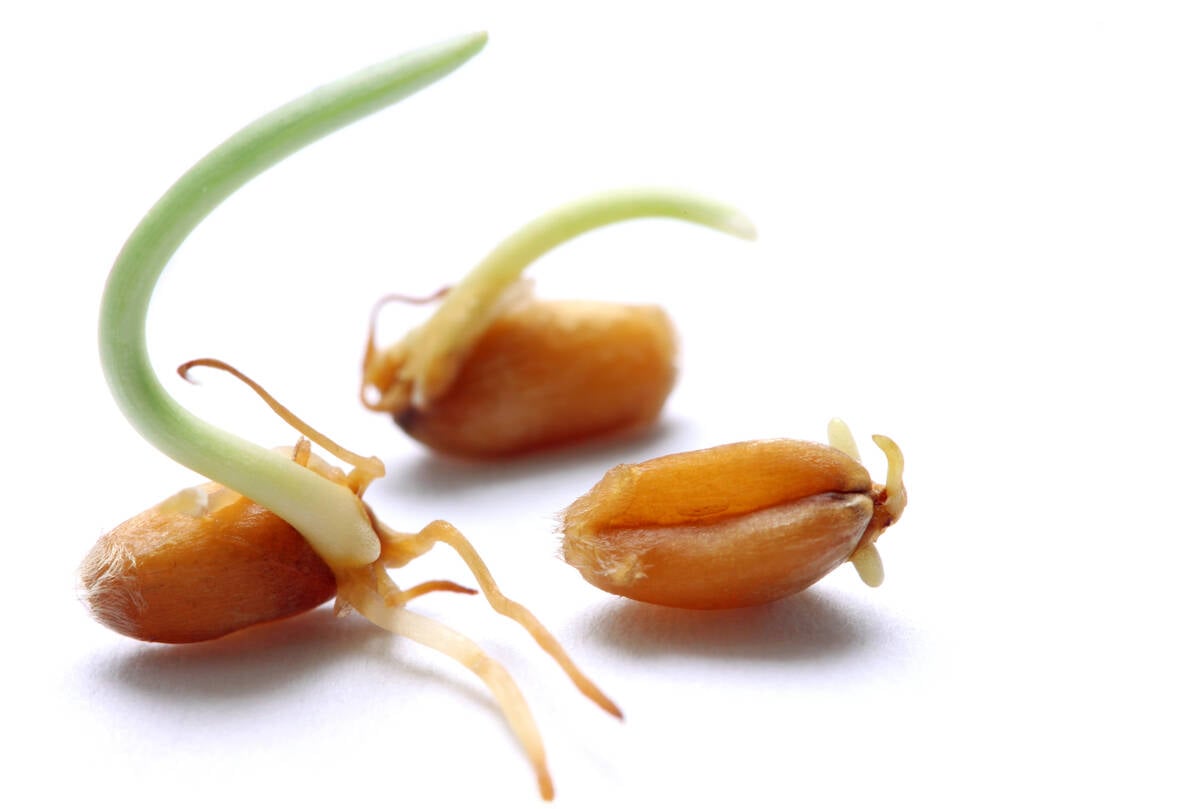and Reuters News Agency
TORONTO – Canada’s federal and provincial agriculture ministers were joined by farm leaders last week in calling for an aggressive and broad launch of new world trade talks next month, for the good of the industry.
In mid-November, trade ministers from around the world are scheduled to gather for a World Trade Organization biennial meeting. The location was to be in Doha, Qatar, but there’s now some doubt that will happen.
“I would say it’s a 90 percent certainty that we will have to go elsewhere, given the growing tensions affecting the Middle East region over the past few days,” said a trade envoy in Geneva, Switzerland.
Read Also

Manitoba farmers fight sprouted wheat after rain
Rain in mid-September has led to wheat sprouting problems in some Manitoba farm fields.
Singapore’s trade minister, George Yeo, told an Oct. 13-14 meeting of ministers from 21 WTO countries that the island state, which staged the WTO’s first big gathering in 1996, would be ready to host a downsized ministerial meeting if it were switched from Qatar.
An earlier attempt failed two years ago to launch the WTO talks in Seattle and build on the last world trade treaty completed in 1994.
“It is extremely important that we launch,” federal agriculture minister Lyle Vanclief told an Oct. 11 news conference after a day-long discussion with provincial ministers. “It appears clearly everybody wants to make that launch happen.”
Saskatchewan minister Clay Serby said a deal to make trade easier is vital for an exporting province like his. “I think we’ve built a strategy or at least a framework that can enhance our agriculture community.”
The ministers focussed on reaffirming their view that Canada can best compete in world markets by having good quality products that are “branded” as safe and produced in an environmentally sustainable way.
But they also renewed support for a Canadian WTO bargaining stance that stresses elimination of export subsidies, substantial reductions in trade and production-affecting subsidies or tariffs, and use of science-based rules to set safety standards.
Farm leaders Bob Friesen, president of the Canadian Federation of Agriculture, and Liam McCreery, president of the Canadian Agri-Food Trade Alliance, used separate presentations to ministers to argue that a successful export strategy requires more than good products. It also requires more fair competition.
McCreery said exporters still face unfair competition and trade barriers.
“Domestic subsidies in the United States total 30 percent of the total value of production and in Europe, it’s 40 percent,” he said. “Our producer and processor members simply can’t compete in this kind of environment.”
Friesen also picked up on the subsidy theme.
He said Canadian governments must be willing to support Canadian agriculture sectors whose products are singled out for subsidy or protection elsewhere.
“If we simply abandon commodities in the face of foreign competition, all we are doing is allowing other countries like the United States to continue to buy out Canada’s share of the international marketplace ,” said the CFA president. “To continue to be a force in the world market and reach our goals and objectives, we must be prepared to match other countries’ agricultural investment.”
He also warned ministers that governments should be careful not to sideswipe export prospects through unwise domestic policies.
Friesen singled out a proposal being promoted by Liberal MP Charles Caccia to require labels on all foods containing genetically modified material.
It would disrupt exports, the CFA said. Last week, it joined a coalition of industry groups lobbying MPs to vote against the Caccia bill Oct. 16.
“What would be the impacts on agri-food trade, especially with our largest trading partner, the United States, who currently buys 61.9 percent of our agri-food exports?” the coalition asks in its letter to MPs.
A good trade policy, said Friesen, involves more than just good trade rules.














